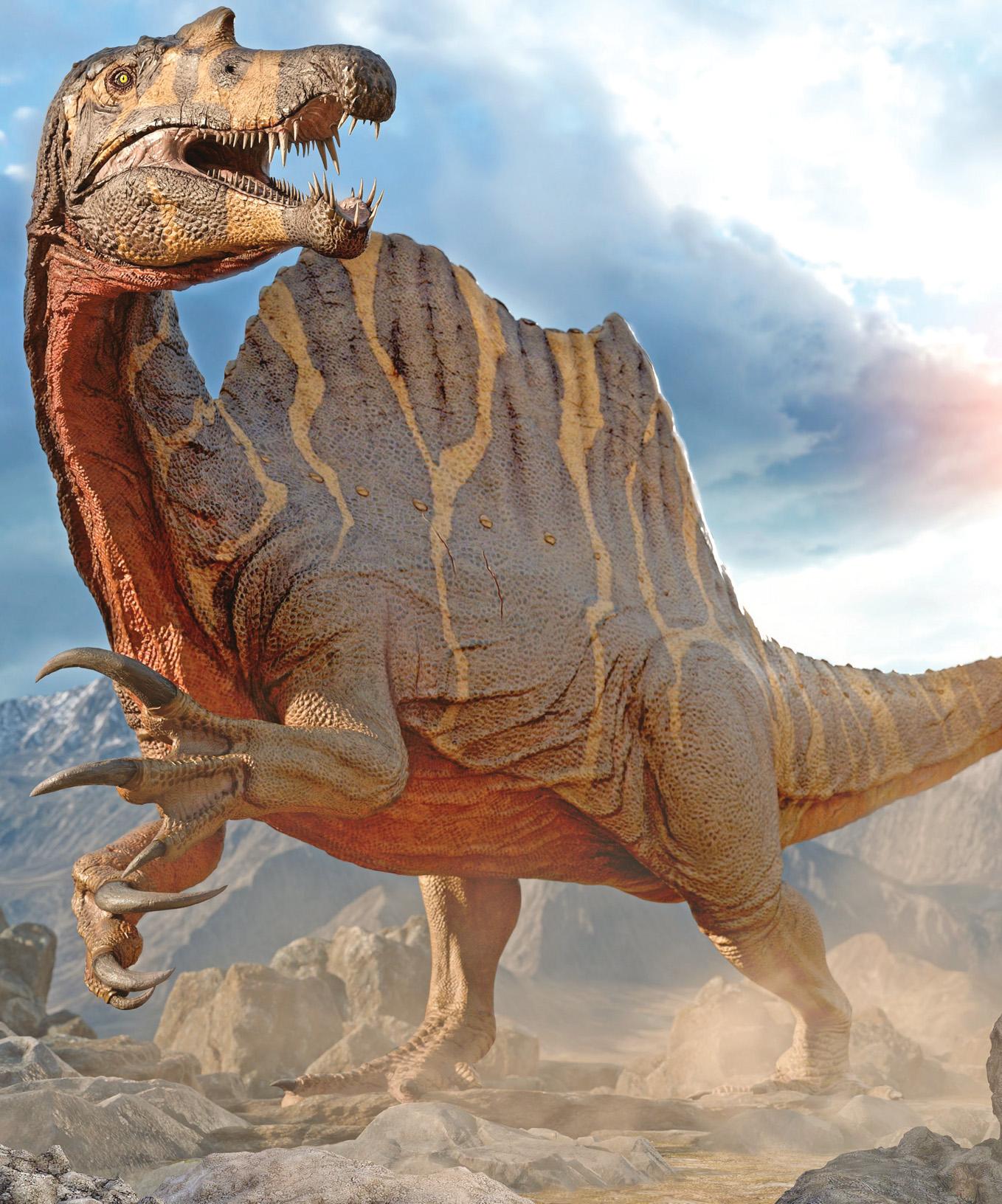
When it comes to supersized animals, dinosaurs are the undisputed champions. They dominated the world for around 200 million years, growing much larger than elephants, giraffes or any other animal alive on land today. You might think Tyrannosaurus rex was the king of the dinosaurs. No doubt, at 12 metres and 7,000 kilograms, it was mighty impressive, but was overshadowed by the real heavyweights – the titanosaurs. Larger relatives of Diplodocus, these titans were the largest animals ever to walk on Earth, and brought the age of the dinosaurs to a colossal conclusion.
Dawn of the dinos Dinosaurs weren’t always supersized. The first to evolve were rather diddy. They appeared around 250 million years ago, at the start of the Triassic period. At the time, the planet looked completely different. Instead of large chunks of land separated into continents, all the land was clumped together in one giant supercontinent called Pangea. Earth had also just experienced a mass extinction event (when species vanish much faster than they are replaced – usually about threequarters of all species over less than three million years). A colossal volcano or perhaps a meteor strike wiped out almost 90% of all animal life.
In this barren world, with most of the competitors off the scene, the first dinosaurs soon took advantage. These first Triassic dinos were the size of dogs, and looked a bit like crocodiles with long legs. By the start of the Jurassic period, 50 million years later, dinos had branched out.
They had evolved many new forms and occupied almost every habitat on Earth. Their legs now moved vertically underneath their bodies (rather than splayed out like a lizard). This allowed them to develop stronger leg muscles, move faster and begin to walk upright.
Esta historia es de la edición Issue 79 de The Week Junior Science+Nature UK.
Comience su prueba gratuita de Magzter GOLD de 7 días para acceder a miles de historias premium seleccionadas y a más de 9,000 revistas y periódicos.
Ya eres suscriptor ? Conectar
Esta historia es de la edición Issue 79 de The Week Junior Science+Nature UK.
Comience su prueba gratuita de Magzter GOLD de 7 días para acceder a miles de historias premium seleccionadas y a más de 9,000 revistas y periódicos.
Ya eres suscriptor? Conectar

Camera Obscura
Imagine stepping inside a dark room, where the only source of light comes through one small hole in the wall.

MANCHESTER SCIENCE FESTIVAL
From 18-27 October, shoppers at the Arndale shopping centre in Manchester, England, will face a giant spider.

Should musicians stop touring?
Multiple concerts travelling around the world have a big impact on the environment.

Are ghosts real?
Plenty of people believe in ghosts, but it's hard to find proof.

SMASH STEREOTYPES
In an extract from his prize-winning book, scientist and writer Adam Rutherford shows you how to use the power of science to fight racism. This chapter, titled Myth-Busting, is all about sport.

Animal awareness
What would it feel like to be another animal?

Hamza Yassin
Go behind the camera with a wildlife filmmaker.

WILDLIFE WATCH
Ben Hoare goes on a safari from his sofa to discover how nature documentaries are made.

Big bum breakthrough
A team of researchers who found out that mammals can breathe through their bottoms have won a prize at the lg Nobel awards.

A jaw-dropping undersea snap
A photograph of a Bryde's whale feeding on a heart-shaped \"bait ball\" of sardines has won the Ocean Photographer of the Year contest.